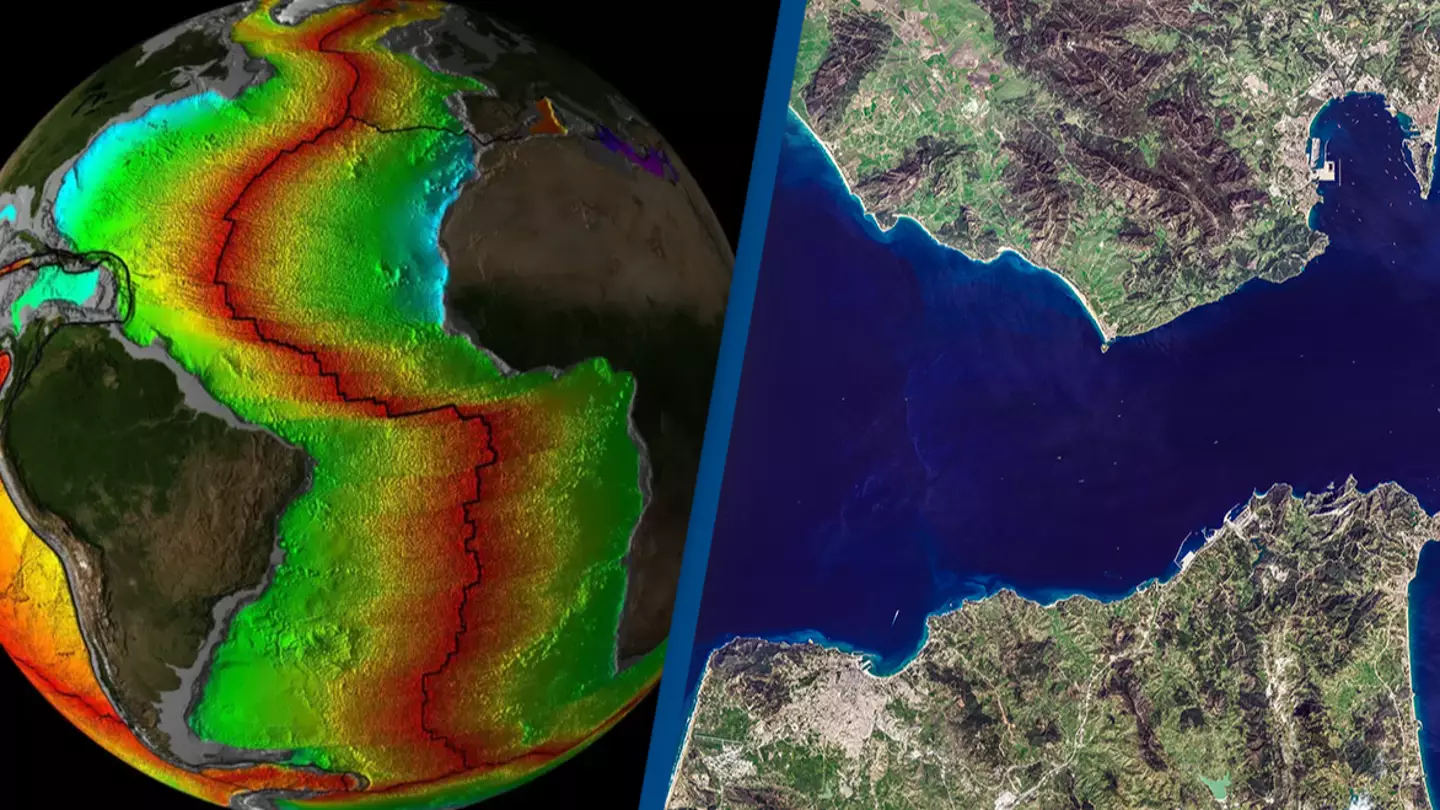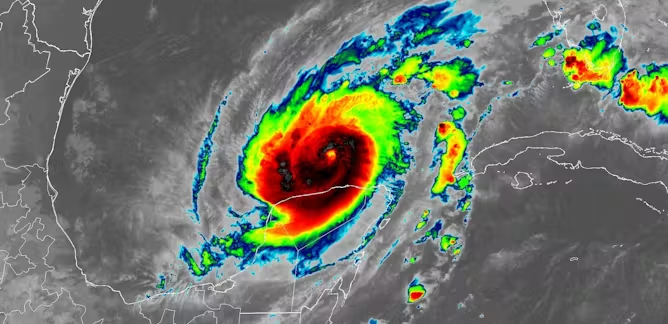The Atlantic Meridional Overturning Circulation (AMOC), a vital network of ocean currents transporting heat to the Northern Hemisphere, is showing signs of a rapid and possibly irreversible collapse due to global warming. If greenhouse gas emissions continue unabated, climate models predict a substantial weakening of this crucial circulation by century’s end, with profound effects on global weather patterns, rainfall, and sea levels.
Global Warming Threatens AMOC’s Stability At Atlantic
In a recent open letter, climatologist Michael Mann of the University of Pennsylvania, along with leading climate experts, has sounded the alarm on the Atlantic Meridional Overturning Circulation (AMOC), a key system of ocean currents that keeps Europe’s climate temperate and the globe’s weather systems relatively stable. The letter, published on October 21, warns of the potentially severe implications of AMOC’s rapid decline due to rising global temperatures. The scientists stressed that the climate risks associated with AMOC’s weakening have been underestimated and urgently need global action.
Often referred to as the “great ocean conveyor belt,” the AMOC operates as a powerful heat distributor, carrying warm, salty water from the tropics northwards into the North Atlantic, where it cools, sinks, and travels back south at deeper levels, creating a continuous circulation loop. This oceanic current plays a pivotal role in moderating the climates of Northwest Europe and other regions and prevents Arctic sea ice from expanding southward.
However, this circulation is now at risk of reaching a tipping point. Research indicates that the AMOC is slowing down at an alarming rate, and climatologists warn that continued greenhouse gas emissions could destabilize the system altogether. In a worst-case scenario, the AMOC could even shut down, which would drastically disrupt Earth’s climate and lead to unpredictable and severe weather patterns across the Northern Hemisphere.

–Potential Consequences: Europe’s Climate, Sea Level Rise, and Extreme Weather
The AMOC’s function extends beyond climate moderation. It transfers nearly a quarter of the heat in the Northern Hemisphere, which means its collapse would have vast and varied impacts, particularly for Europe. The northern hemisphere could experience significant cooling if the AMOC continues to weaken, and shifting global climate belts might push the equatorial rainfall belt further south, affecting agricultural production and weather patterns.
In addition to altered temperature zones, climate models predict that if emissions continue to rise at current rates, the AMOC could weaken by as much as 30–50% by 2100. Such a decline could trigger extreme weather events in Europe, such as more intense and frequent storms, droughts, and floods, and may even result in the increased melting of Arctic sea ice, further destabilizing the climate in Northern Europe.
Coastal areas, especially along the eastern seaboard of the United States, could also face accelerated sea-level rise as a result of the AMOC weakening. This effect alone could contribute several centimeters to sea-level rise, exacerbating flooding risks for cities and coastal communities.
The AMOC’s Tipping Point: A Feedback Loop for Collapse
The AMOC’s role as a global temperature moderator is rooted in its transport of salty surface water into the North Atlantic, balanced by the flow of cooler, less salty deep water southward. However, as the Greenland ice sheet continues to melt, large amounts of freshwater are entering the North Atlantic, disrupting this balance. This influx of freshwater makes the surface water less salty, reducing its density and making it less likely to sink. This, in turn, weakens the AMOC’s ability to cycle water effectively, creating a dangerous feedback loop that could lead to a sudden collapse.
Experts are particularly concerned about this potential for feedback-driven weakening, as even a relatively small trigger, such as Greenland’s ice melt, could initiate a chain reaction. This collapse would mark a tipping point in the AMOC’s strength and stability, putting the entire Northern Hemisphere’s climate at risk.
Why Should This Matter About Atlantic Be Our Concern ? Global and National Implications
A collapse or significant weakening of the AMOC would have profound implications for the entire globe. For the United States, AMOC disruption could increase hurricane intensity along the East Coast, complicate agricultural patterns, and contribute to more frequent and severe flooding events. Changing weather patterns may also increase the frequency of droughts in already arid regions, leading to significant shifts in agricultural productivity.
On a broader level, climate change-related disruptions in the AMOC could further destabilize ecosystems and economies worldwide, impacting trade, agriculture, and natural resources. The urgent message from climatologists is clear: the AMOC’s collapse would mark a point of no return, with climate impacts cascading across regions and sectors.

Global Action Urged by Scientists: A Call for Emission Reductions
To avert a potentially catastrophic collapse of the AMOC, scientists have urged policymakers to take immediate action by strengthening global climate commitments. They called on governments worldwide to reinforce the goals of the 2015 Paris Agreement, which aims to limit global temperature rise to 1.5 degrees Celsius above pre-industrial levels. Achieving this target requires substantial reductions in greenhouse gas emissions, particularly carbon dioxide, the primary driver of global warming.
The scientists stressed that continued inaction risks locking the planet into a trajectory of unmanageable climate changes, many of which are already unfolding at unprecedented rates. Their recommendations include enhancing global cooperation on climate policies, investing in renewable energy, and prioritizing sustainability at every level of policy and industry.
In light of this latest research, experts like Michael Mann emphasize that the climate risks associated with the AMOC’s destabilization are not speculative; they are already beginning to take shape. Policymakers must, therefore, approach climate targets with renewed urgency to prevent the AMOC from crossing a tipping point that could trigger centuries of climate instability.
With the potential to alter lives and landscapes, the AMOC’s stability is not just an environmental issue but a critical call for immediate, coordinated climate action.

